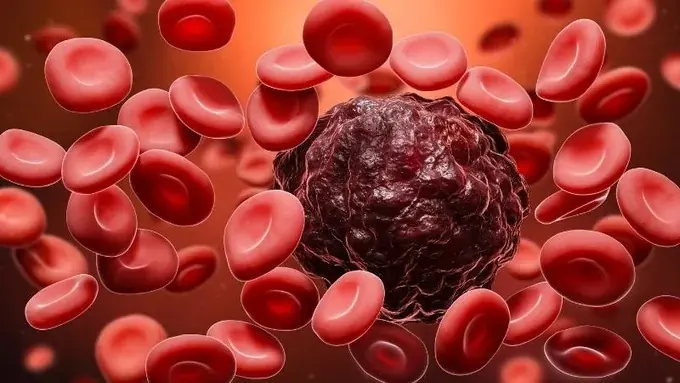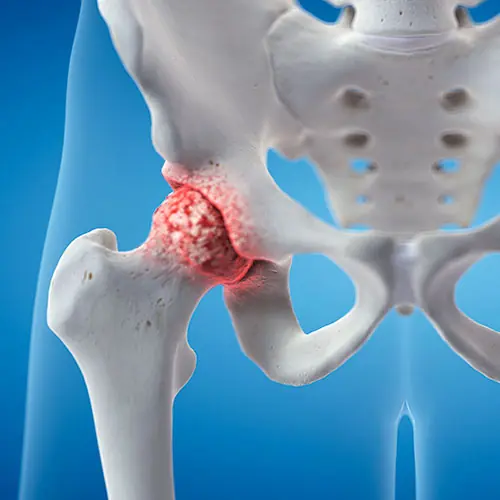
Anyone Who Wants to Avoid Having a Stroke Needs to Start Eating these 15 Foods Immediately

When we think about essential minerals for health, calcium and iron are often the first to come to mind. Magnesium, however, is frequently overlooked—despite being just as critical, if not more so, for the proper functioning of the human body.
In reality, magnesium is responsible for over 300 essential biochemical reactions, including protein, DNA, and RNA synthesis; antioxidant production; muscle contraction and nerve transmission; cell communication; blood sugar and blood pressure regulation; and even the formation and maintenance of bones and soft tissues. Yet, most people are not getting enough magnesium from their daily diets.
What Magnesium Does in the Body
One of magnesium’s most powerful roles is its function in antioxidant production, particularly in the synthesis of glutathione, often called the body’s “master antioxidant.” In addition, magnesium helps bind and eliminate heavy metals like cadmium, chromium, nickel, and excess zinc, facilitating their detoxification from the body.
It also plays a crucial role in stroke prevention, supports cardiovascular health, and helps regulate inflammation—a major contributor to chronic diseases.
Magnesium from food is absorbed in the small intestine and transported via the bloodstream throughout the body. It's stored in bones, soft tissue, and to a smaller extent, in the blood. The kidneys regulate magnesium levels, excreting the excess through urine. However, if dietary intake is too low, the kidneys can't compensate indefinitely.
The Dangers of Magnesium Deficiency
In 2009, the World Health Organization (WHO) estimated that a staggering 75% of Americans are magnesium deficient. This is not a trivial issue—it has widespread implications for public health.
A massive meta-analysis involving 40 studies across nine countries and over one million participants showed that:
-
2.5–15% of participants had low serum magnesium levels
-
Increasing magnesium intake by just 100 mg per day didn’t significantly affect coronary heart disease rates
-
However, that same 100 mg/day increase did reduce the risk of stroke, heart failure, type 2 diabetes, and all-cause mortality
This means that even small increases in magnesium consumption can have significant protective effects—especially against major killers like stroke and diabetes.
Magnesium's Link to Chronic Disease
Magnesium deficiency is associated with numerous chronic health conditions, including:
-
Type 2 diabetes
-
Cardiovascular disease (CVD)
-
Metabolic syndrome
-
Chronic obstructive pulmonary disease (COPD)
-
Alzheimer’s disease
-
Kidney stones and kidney dysfunction
-
Bone disease and osteoporosis
The current Recommended Dietary Allowance (RDA) for magnesium is:
-
400–420 mg/day for men over age 19
-
310–320 mg/day for women, with an additional 40 mg during pregnancy
The Work of Dr. Mildred Seelig
Dr. Mildred Seelig, a pioneering magnesium researcher, authored Magnesium Deficiency in the Pathogenesis of Disease. She documented how chronic magnesium deficiency plays a major role in:
-
Ischemic heart disease
-
Sudden infant death syndrome (SIDS)
-
Heart attacks in infants
-
Arteriosclerosis
-
Pregnancy complications, such as eclampsia and toxemia
-
Imbalances involving magnesium, calcium, vitamin D, and phosphorus
Dr. Seelig emphasized that for the body to properly utilize these nutrients, they must exist in delicate balance. For example, excess calcium or phosphorus increases the body's demand for magnesium. This imbalance is exacerbated by diets high in processed foods and synthetic nutrient fortification, such as calcium- and vitamin D-enriched packaged products.
Modern Diets and Magnesium Deficiency
Dr. Andrea Rosanoff, a colleague of Dr. Seelig, continued this research. She noted that modern processed diets are magnesium-poor, especially due to:
-
Over-farming and soil depletion
-
The use of chemical fertilizers and pesticides
-
Hybridization and genetic modification of crops
-
Overconsumption of phosphorus-heavy soft drinks, which depletes magnesium
As our global diet becomes more processed, magnesium deficiency is expected to increase, along with chronic diseases like CVD and diabetes.
Health Conditions Linked to Magnesium Deficiency
Long-term magnesium deficiency has been linked to:
-
Arrhythmia (irregular heartbeat)
-
Asthma
-
Chronic depression
-
Hypertension (high blood pressure)
-
Insomnia and poor sleep
-
Memory loss
-
Migraines and chronic headaches
-
Restless leg syndrome
-
Tremors and muscle spasms
Despite these serious consequences, magnesium levels are rarely tested in routine bloodwork or cardiovascular risk screenings.
Magnesium and Heart Disease
In the mid-20th century, researchers were puzzled by rising heart attack rates, particularly among otherwise healthy individuals. While factors like high blood pressure, obesity, smoking, and high LDL cholesterol became the main focus, low magnesium intake was also identified as a direct contributor to heart disease—yet this link was largely ignored in favor of the saturated fat and cholesterol narrative.
Dr. Rosanoff emphasized that regions with low magnesium levels in soil and water saw higher rates of sudden cardiac death, a pattern also confirmed by animal studies as early as 1936.
Who’s at Risk of Magnesium Deficiency?
Certain conditions and lifestyle factors can increase magnesium loss or reduce absorption, including:
-
Chronic gastrointestinal disorders, like Crohn’s disease or IBS
-
Alcoholism
-
Kidney disorders, including diabetes and the use of diuretics
-
Aging, which reduces magnesium absorption in the intestines
Top Magnesium-Rich Foods
The best way to maintain healthy magnesium levels is through a nutrient-rich diet. Whole, organic, unprocessed foods are your best bet.
Here are 15 magnesium-rich foods to include regularly:
-
Avocados
-
Beet greens
-
Raw cacao (unsweetened cocoa)
-
Collard greens
-
Cruciferous vegetables: broccoli, Brussels sprouts, bok choy, kale
-
Fatty fish: wild-caught salmon, mackerel, sardines
-
Bananas and figs
-
Fresh herbs: parsley, basil, fennel, chives
-
Nuts and seeds: almonds, cashews, pumpkin, sunflower, Brazil nuts
-
Legumes: lentils, lima beans, black beans
-
Swiss chard
-
Romaine lettuce
-
Spices: coriander, cumin, mustard seed, clove
-
Spinach and turnip greens
-
Winter squash
Magnesium and Cellular Communication
Magnesium acts as a cellular gatekeeper—it facilitates the transport of other minerals (like potassium and calcium) between cells. It is essential for protein synthesis, enzyme activation, and hormone regulation.
It also affects immune function and muscle performance, impacting everything from energy levels to inflammation and hormonal balance.
Preventing Stroke and Diabetes with Magnesium
Stroke:
Magnesium is a natural vasodilator, which means it helps relax and widen blood vessels. This lowers blood pressure and improves circulation, significantly reducing the risk of ischemic stroke, which is caused by blockages in blood vessels.
Diabetes:
Up to 50% of people with type 2 diabetes have low magnesium levels. This deficiency may increase insulin resistance and impair glucose regulation. Magnesium also plays a role in maintaining healthy insulin production and glucose metabolism.
Other Sources of Magnesium
Besides food, magnesium can be absorbed through the skin via:
-
Epsom salt baths (magnesium sulfate)
-
Soaking in seawater or magnesium oil
These topical methods are safe and effective ways to increase magnesium levels without gastrointestinal side effects.
Magnesium Supplements: What to Know
While dietary sources are ideal, supplements are sometimes necessary. However, synthetic supplements may not be well absorbed and can be harmful in excess.
Excessive supplementation may cause:
-
Diarrhea (magnesium is a natural laxative)
-
Muscle weakness
-
Fatigue or confusion
-
Irregular heartbeat
-
Kidney problems (especially in those with existing kidney disease)
Safe upper limit from supplements: 350 mg/day (for adults), according to the Institute of Medicine.
Medication Interactions
Magnesium supplements can interfere with various medications, including:
-
Antibiotics (e.g., tetracyclines, quinolones)
-
Osteoporosis medications (bisphosphonates)
-
Diuretics
-
Antacids and proton pump inhibitors
-
Heart medications (e.g., digoxin)
-
Anticoagulants and anti-malarial drugs
Always consult a healthcare professional before beginning magnesium supplementation.
The Bottom Line
Magnesium is not just another supplement—it’s an essential nutrient that affects nearly every system in the body. Unlike trendy health fads, magnesium's role in maintaining cellular function, preventing chronic disease, and supporting energy metabolism is backed by decades of research.
As Dr. Rosanoff put it:
"Real food grown in real soil is the best source of magnesium. No pill can fully substitute what nature provides.”
Eat organic, whole foods. Skip processed junk. Choose balance. Your body—and your heart—will thank you.
News in the same category


Eat this #1 meal to help unclog your arteries naturally

Canker Sores Are The Absolute WO:RST…Here’s How To Get Rid of Them Fast!

Cloves: 10 Health Benefits of Eating 2 Daily

How to Spot the Early Warning Signs of Cancer Growing in Your Body

New Research Finds 40-50% of Colon Cancer Cases Can Be Prevented by Doing These Simple Things

The Simple Trick to Get Rid of Ingrown Toenails Fast—You’ll Wish You Knew Sooner!

Statins warning: new research confirms these harmful side effects

5 Herbs Your Liver Wished You’d Start Eating More Often (Or At Least Try!)

If cancer is present, 3 key symptoms often appear in the morning

The Warning to People Who Regularly Walk Around Their Homes Barefoot

Foods That Add Inches to Your Waistline

Why the Neck Sags with Age: Causes, Solutions, and Prevention Tips

Top 3 Vitamins for Hip Arthritis

Put THIS Mixture Under Your Tongue Before Bed And NEVER Wake Up Tired Again!

Shocking Study: Popular Birth Control Linked to Higher Brain Tumor Risk in Women
While meningiomas remain uncommon, this research suggests that some forms of hormonal contraception — particularly long-term injectable Depo-Provera — may raise the risk more than previously understood.

4 Things You Should Never Say to Someone with ADHD (And Better Alternatives)
ADHD is often misunderstood, leading many people to make comments that, while well-intentioned, may actually cause harm. Knowing what not to say—and what to say instead—can make your conversations more empathetic, supportive, and genuinely helpful fo

Silent Danger: How Stalking Secretly Raises Women’s Risk of Heart Attack and Stroke
Being stalked is not just an emotional burden—it can leave a lasting mark on the body. A new study reveals that women who have been stalked face a sharply higher risk of heart attack, stroke, and long-term heart disease, proving that trauma isn’t onl

Breakthrough study shows lithium can ‘reverse’ Alzheimer’s damage even in advanced stages
News Post

Save this valuable remedy that helps de:toxify and can save the life of someone bitten by a ra:bid d:og or snake in just 1 minute.

The method to drive away an entire rat colony using just a handful of rice, without the need for harmful poisons.

Clean your house with this simple trick using water, and the house will be as clean as new, with no dust sticking, even if you don't clean it for a whole week.

Simple Homemade Cough Syrup Removes Phlegm From The Lungs

Eat this #1 meal to help unclog your arteries naturally

Canker Sores Are The Absolute WO:RST…Here’s How To Get Rid of Them Fast!

Mimosa Pudica Tea: How to Prepare and Health Benefits

7 Benefits and Uses of Ageratum conyzoides

Tips to clean rust from gas stoves with rice water and cooking oil, seems like a joke but the effect is surprising, the stove is sparkling clean

5 things you should never put in the washing machine, not only can they not be cleaned, they are also dangerous

The small round hole at the end of the nail clipper is useful

Mix toothpaste with rice water: Great use, solves problems both men and women encounter

Eating green bananas this way is very good for your health

Unexpectedly reduce electricity bill with the trick of putting tissue paper in the refrigerator - Anyone can do it

10 Shades of Japanese Whitening Secrets: Rice-Based Beauty Formula for Wrinkle-Free, Spotless Skin

This type of powder is often found in the kitchen. Just sprinkle a little on ornamental plants, the buds will be dense, and the flowers will fill the garden

Don’t Boil Eggs Directly In Water — Here’s How FIVE-STAR Hotels Cook Their Eggs!

When someone in the family passes away, you should know that you should not keep these 4 relics for your children and grandchildren.

3 mistakes when using plastic wrap that can cause cancer that many people make
